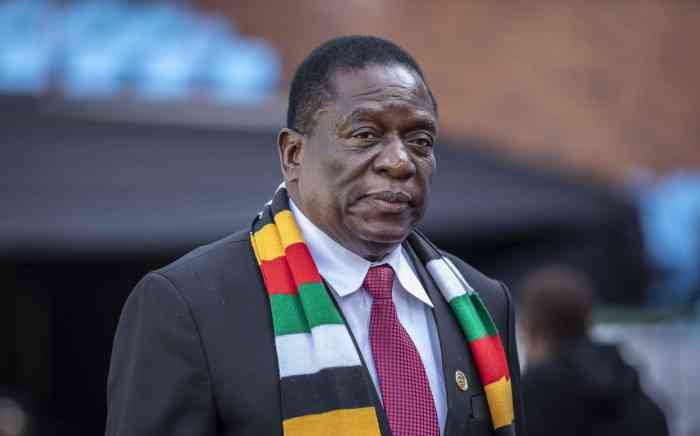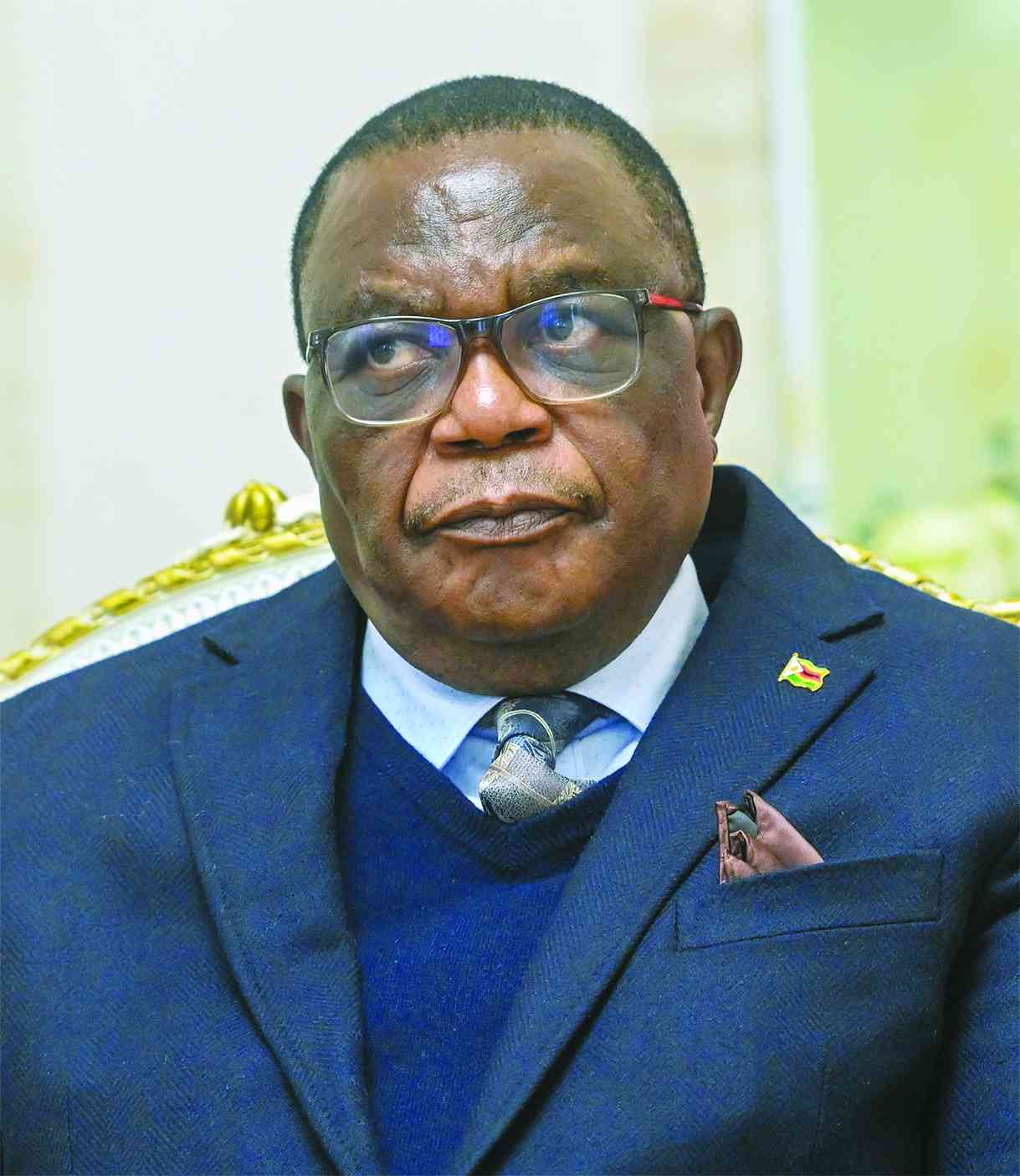
PRESIDENT Emmerson Mnangagwa has vowed to “speedily” sign into law a Bill that would severely restrict civic space, the operations of non-governmental organisations, and the right to freedom of association in the country.
The new law, the Private Voluntary Organisations (PVOs) Amendment Bill, which the National Assembly and Senate have already passed, was necessary, Mnangagwa claimed, to protect and defend the country’s sovereignty from destabilising foreign interests, and to stop “the turning of a small section of mercenaries in our midst into the proverbial Trojan Horse for attacking our sovereignty, our values and our politics”.
Once signed, provisions of the Act would allow the government to cancel the registration of organisations deemed to have “political affiliation” with little to no recourse to judicial review.
Actions considered to violate certain provisions of the law could even lead to criminal prosecution, with penalties ranging from heavy fines to imprisonment.
Already, the authorities have used the existing PVOs Act to deregister several civil society organisations ahead of this year’s general elections, which will be held during the month of July or August on a date to be set.
Domestic and international human rights and civil society organisations, including Human Rights Watch and Amnesty International, have urged Mnangagwa to not sign the Bill, as it will further threaten freedom of association in the country and contravene several international human rights instruments that Zimbabwe ratified.
These include the International Covenant on Civil and Political Rights and the African Charter on Human and Peoples’ Rights.
United Nations experts echoed this plea, calling on Mnangagwa to reject the Bill, warning that “the restrictions contained therein will have a chilling effect on civil society organisations, particularly dissenting voices”.
- Red Cross honours volunteers
- Believe in the power of kindness
- Hunger stalks Chiredzi villagers
- Red Cross honours volunteers
Keep Reading
The African Union (AU) and the Southern African Development Community (Sadc) should follow suit and urge Mnangagwa not to sign the Bill into law.
They should also urge the government to reconcile the PVOs Act in its present form with AU and Sadc standards, including the African Charter, AU Guidelines on Freedom of Association and Assembly in Africa, and Sadc Principles and Guidelines Governing Democratic Elections.
The credibility of the upcoming elections hinges on the ability of civil society groups to operate, monitor and report without fear of deregistration or criminal penalties. - Human Rights Watch
Disaster relief key to arresting drought threat
THE International Federation of Red Cross and Red Crescent Societies (IFRC) Disaster Response Emergency Fund (DREF) has approved a total of CHF 549 318 (US$591 148,57) for the Zimbabwe Red Cross Society’s Early Action Protocol on droughts.
The approved amount consists of an allocation of CHF 182 440 (US$196 298,69) for readiness and CHF 366,878 (US$394 747,15) allocated to implement early actions once the defined triggers are met.
Allocations are made from the Anticipatory Pillar of the DREF. Unearmarked contributions to the DREF are encouraged to guarantee enough funding is available for the Early Action Protocols being developed.
The Drought Early Action Protocol (EAP) for the Zimbabwe Red Cross Society is a tool to guide the timely and effective implementation of early actions based on forecast and observational data, which predict meteorological hazards with a high likelihood of humanitarian impact.
Drought (meteorological and agricultural) is the most common and high-impact natural hazard occurring in Zimbabwe, both in terms of frequency of occurrence and the number of people affected, with droughts accounting for seven out of the 10 top major natural hazards since recorded 1990.
Due to increasing climatic uncertainty, and reduced coping capacity, the risk of drought has spread to all areas of the country and is affecting a broader range of people, in both urban and rural areas.
Furthermore, the impacts of this hazard are predicted to increase, with the World Bank Group Climate Change Knowledge Portal, predicting the annual likelihood of Zimbabwe encountering severe drought to increase by 21% in 2040 to 2059 and by 47% in 2080 to 2099 compared to the baseline period of 1986 to 2005 scenario.
At a national scale, droughts often result in crop failure, loss of livestock and wildlife, and power outages.
The country’s worst drought occurred in 1991/2, directly affecting five million people and resulting in serious food insecurity and water shortages which had a ripple effect on the southern African region, compromising food security in countries that were reliant on Zimbabwe’s food exports.
Repeated drought exposure has entrenched vulnerabilities and reduced the coping capacities of small-scale farmers, leaving an increasing number of people who are affected by the impacts of drought.
This EAP has been developed through extensive consultation with key informants, at the community, district, and national levels, and has been supported by technical guidance from the 510 Data initiative and the Red Cross Red Crescent Climate Centre.- IFRC
Cyclone Freddy is now upon us, is Zim ready?
NOW another cyclone is on its way to Manicaland, my home province.
Cyclone Freddy has made me ask a lot of questions, including: Are we saying Zimbabwe has known about these cyclones in the last 10 years?
Never once did I ask why my grand father had built a house on a foundation of stones, a metre off the ground, with a roof common in Manicaland province.
It all started making sense after realising the power of Cyclone Idai of March 2019.
From personal research, I was advised that the previous house was swept away during some “storm”.
How that happened I was never told, but now I fully understand that for God’s sake, it was a cyclone.
Zimbabwe has a weekly dataset that tracks and keeps record of cases of reported political violence, civilian-targeting and demonstrations in the country.
Why do we not have a dataset of cyclones that have hit the country and the devastation that has been caused over the last 100 years.
Zimbabwe has some of the best engineers in the world. What inspections and improvements have been carried out on roads, bridges and other infrastructure that was developed?
Do we have professionals to check that the infrastructure is still intact?
For new buildings, what education was provided for local builders, villagers and community.
My grandfather built a house that is one metre off the ground using stones.
The roof is tilted at an angle of 30° to 45° to prevent it from being blown off by the wind.
I learnt a few things myself: to avoid wide roof overhangs; separate the veranda structure from the house.
I also learnt to make sure that the foundations, walls and roof structure are all firmly fixed together. How did I learn that?, from the local community.
The people in the area have intellectual history that Zimbabwe should have tapped from.
Now that another cyclone is upon us, is Zimbabwe ready for Cyclone Freddy or we are going to witness another fiasco akin to what happened during Cyclone Idai.
Manicaland is my home province let’s protect the people. Our government needs to put in place structures and facilities to protect its people from such disasters.
People need to be furnished with adequate information on how to prepare and protect themselves and their families in case cyclones strike. - Jacob Kudzayi Mutisi






